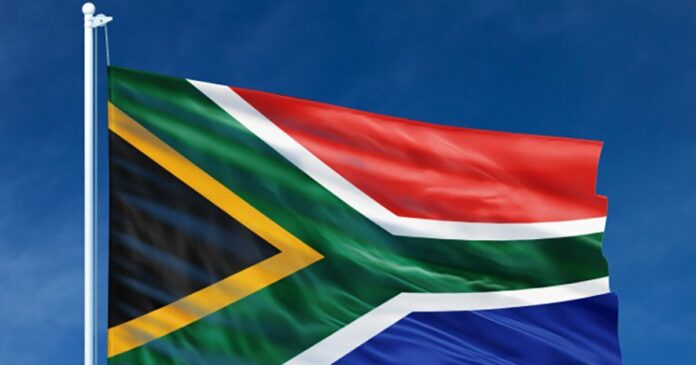The two largest parties lost electoral support in the 2021 local government elections, which signifies a loss of credibility. Meanwhile, EFF, ActionSA and Freedom Front Plus appear to be gaining credibility in the eyes of the voters.
The ANC is a failed elected government and has declined from 69.69% electoral support in 2004 to the 45.56% overall support it received in 2021 local government elections, falling below 50% for the first time.
The ANC has lost 34.62% of its electoral support nationally in terms of statistics on record at the Electoral Commission of South Africa. It has also become clear that the black majority, especially in the urban areas, was pleased with the high performance of the ANC before the 2004 elections and they rewarded it with 69.69% and that performance continued until 2008. After that blatant corruption, incompetence and poor performance delivered record level unemployment, world beating inequality and widespread financial precarity and economic catastrophe in black families, especially. This linked to deteriorating and dysfunctional municipalities has cost the two largest parties in terms of
municipal votes.
This opens the door for other parties and the coalition model of politics. Collective governance is provided for in the Municipal Structures Act and it reflects our view that we are one nation but we are cosmopolitan; you have many African nations here: the Pedi, Sotho, Venda, Tsonga, Swati, Tswana, Zulu, Xhosa, Zulu, Ndebele, Khoisan and then a conglomeration of Europeans under the banner of white Afrikaner (you do have black Afrikaners which are the majority Afrikaners). In addition to that, another lump of “English” and another one of Asians and so on. This is complemented by a full spectrum of political ideologies with Afriforum and Freedom Front Plus on the extreme right and EFF and BLF on the extreme left. In the middle you have an assortment of nationalists and liberals including the ANC, DA, ActionSA, Rise Mzansi, Arise South Africa, NFP, IFP, UDM, Cope, ATM, PA and Xiluva.
The younger and growing political parties facing the declining bigger and older parties realise that the loss of votes signals loss of legitimacy based on long-term mediocrity, incompetence, and poor performance.
The new and younger leaders have credible track records behind them including Bongani Baloyi, Songezo Zibi and Herman Mashaba, among others.
They are also clear that the issue here is about getting the job done rather than celebrating the glorious battles of the struggles of the previous 120 years.
There may well be a view that says in Gauteng the EFF and the ANC have the numbers but the best chairman or premier is Bongani Baloyi, who can focus on two things – namely, superior performance and building sufficient consensus driven by evidence-based planning.
This element is lacking everywhere in SA. However, the Gauteng City Region Observatory at Wits brings enormous interdisciplinary expertise to all aspects of the state and governance to drive evidence-based planning. It follows that any successful collective government of provincial unity must embrace daily the inputs of such institutes. There are others such as CSIR, HSRC, ARC, UP, TUT, UJ and VUT in Gauteng. The Free State has its own high-powered institutions, Western Cape, North-West and so on.
This logic then says even nationally there is enough room to tone down ANC and DA leadership, especially at presidential level. Dominant party leadership has brough us many failures that are unresolved including the arms deal, Marikana massacre, Phala Phala, state capture, loadshedding, etc.
It follows the new minds like Zibi or Velenkosi Hlabisa may well prove to be worthwhile presidents of a government of national unity to steer us away from the well-established culture of mediocrity and reckless majoritarianism.
What is needed is an economic growth rate closer to the 8% proposed by the DA, but they have no capacity or track record of achieving it. They have had the Western Cape at least since 2009 and have not achieved the 5.4% stipulated in the National Development Plan since 2012 nor the 8% they are proposing.
The year 2024 is as significant as 1994, the ushering in of a new era. That is an era where bloodless palace coups orchestrated from deep within the ruling party are ended. The new era is one where proven skill, honesty and high productivity are main qualifiers for public office.
- Swana is a political analyst, an academic and a member of the 70s Group
Follow @SundayWorldZA on Twitter and @sundayworldza on Instagram, or like our Facebook Page, Sunday World, by clicking here for the latest breaking news in South Africa.



